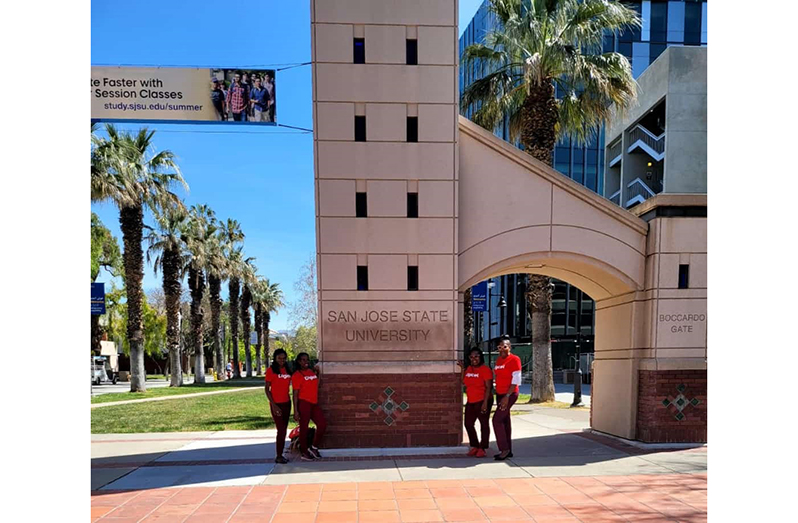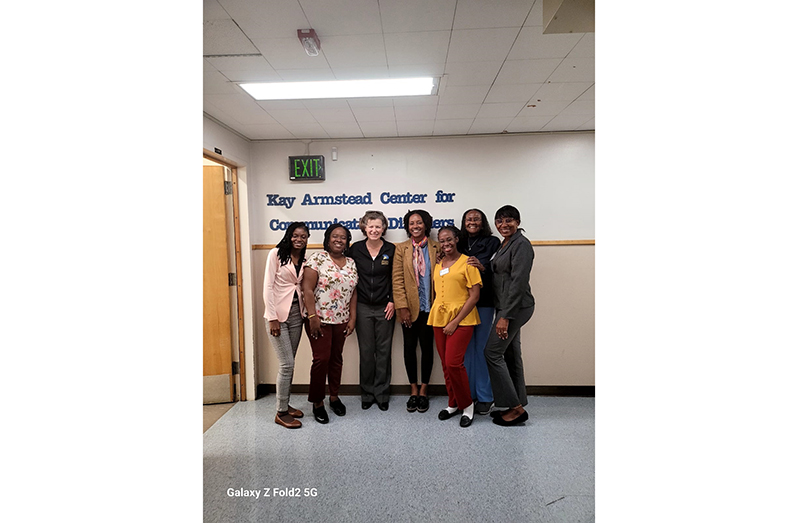FOUR local Speech and Language Therapists (SLTs)/audiologists benefitted from an extensive period of recent self-reflection and theoretical work on how to efficiently deal with persons in their respective departments and be better supervisors.
“It was a whole lot of reflection on how we can better our service with the staff that we have,” said Kerianne Richards, one of the four who participated in the internship in Clinical Education: A practicum in SLP (Speech-Language Pathology) Supervision programme.
Richards and her colleagues Sonia Fredericks, Lenise Robinson, and Michelle Jackman travelled to South Carolina and San Jose, California for 17 days to participate in the training.
“The American Speech-Language-Hearing Association (ASHA) funded our UG programme and the person who sphere-headed it was Gloria Weddington. Due to our mentorship programme we had asked for some supervisory training because when the first cohort graduated from UG, we didn’t have any sort of training in supervision because we came back to a department where had to have persons working under us. That’s how this training came about,” Richards shared in an interview.
The participants looked at group therapy for aphasic persons (persons who had a stroke and from it got aphasia, which is a difficulty understanding or trying to bring out words).
“In Guyana, we do not have an aphasia group for speech therapy; we have an overall strokes survivor’s group, so one of the things we would want to implement is to have most of our stroke patients come together, especially the ones who have speech and language impairment, to see how best they can communicate with and support each other,” Richards shared.
She and the other participants also noticed that the clinics abroad are child-centred, meaning that the children would lead the sessions. “Here in Guyana, we don’t allow them to lead because it can become chaotic and we don’t have the space to provide that.” Of course, this is something that will be looked at.
The participants also learned many new things, like how to use alternative communication to speak. “We also saw that they have an autistic adult group. We don’t have the resources here to accommodate that. But we will look at it,” Richards further shared.
Meanwhile, clinical educators are preceptors and mentors and need training that includes evidence-based information, guidance, and methods. Successful clinical educators require knowledge and experience and mentoring by well-educated, experienced mentors.
Hence, this project was able to provide the speech therapists with workshops and 10 days of observation, practice, interaction, and debriefing with supervisors of students and colleagues.
In many universities around the world, supervision of students, assistants, and colleagues is a process that is as varied as the number of supervisors engaged in the practice. No training is expected or required. Many SLP clinicians have been supervising students for many years, working blindly, choosing to work with students in a way they were supervised, making changes as they believe are successful and omitting the practices that have proven ineffective.
So in 2016, ASHA selected an ad hoc committee to examine the issues and develop a position statement for the organisation on the topic of supervision. This was the beginning of the discipline of clinical education as an evidence-based speciality in SLP. Consequentially, ASHA now requires clinical educators (both new and experienced) who supervise students and clinical fellows to complete professional development courses every three years.





.jpg)











